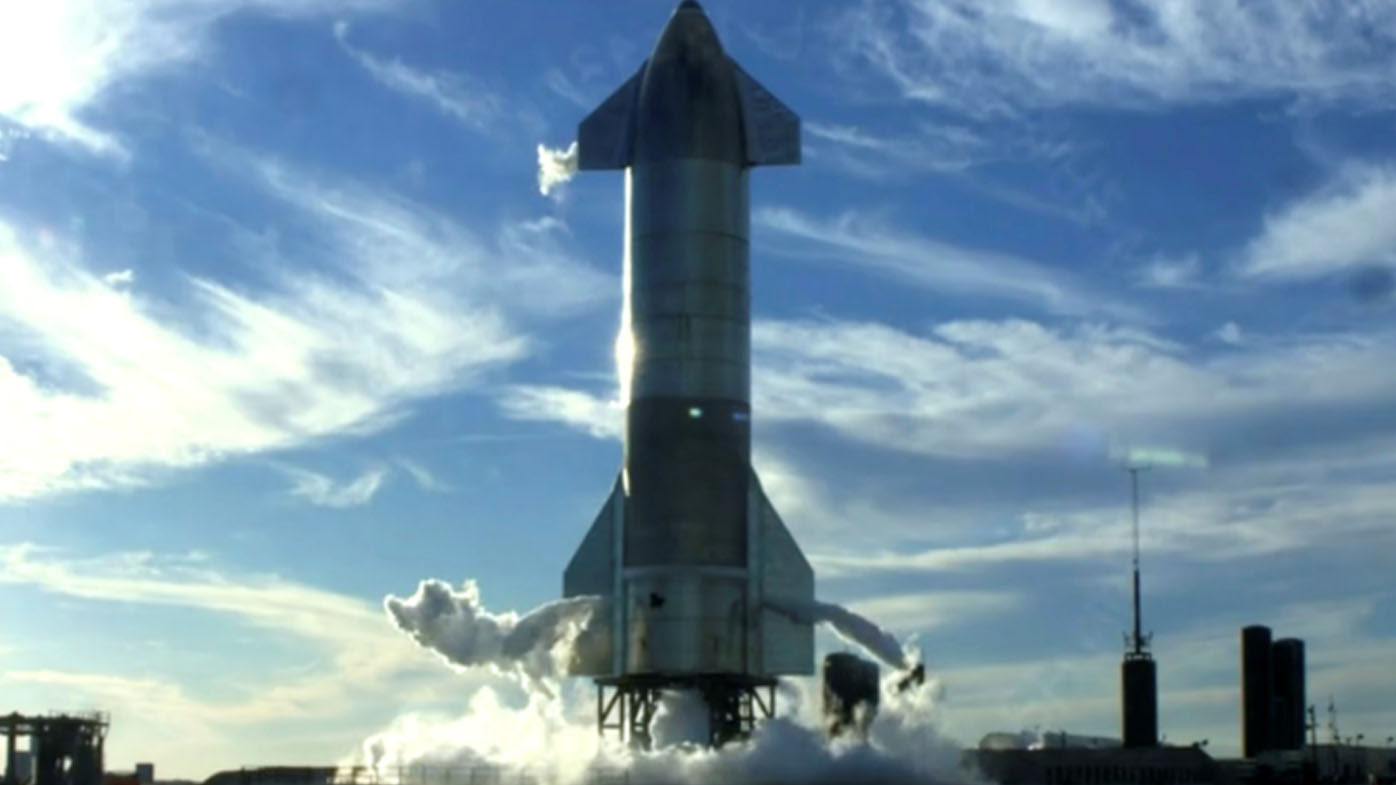A giant experimental rocket built by Elon Musk's SpaceX has blasted off nearly 15km above the company's testing facilities in South Texas.
It marks the highest test flight yet of the technology Mr Musk hopes will one day ferry the first humans to Mars.
The hulking rocket is an early prototype for Starship, a 100-metre tall spaceship proposed by Mr Musk that he hopes will be used for hauling massive satellites into Earth's orbit, shuttling people between cities at breakneck speeds and - eventually - establishing a human settlement on Mars.

The successful launch came after an earlier attempt was called off with just one second left on the countdown clock on Tuesday.
It's not clear why SpaceX halted the launch, though last-minute scrubs are not uncommon even during routine rocket launches. Computers or flight controllers may have caught an abnormal reading about the rocket's health and stopped the engines from igniting. SpaceX did not disclose the reason for the delay.
The 14,000-metre test launch is expected to give the Starship plenty of room to conduct a "landing flip manoeuvre," which will allow engineers to test the vehicle's ability to reorient itself for landing as it would during the final leg of an orbital flight.
https://twitter.com/elonmusk/status/1336808486022258688?ref_src=twsrc%5EtfwThe SN8 rocket wouldn't be able to reach Earth's orbit on its own anyway. The final Starship design will need six rocket engines, and even then the vehicle will require a separate, hulking rocket booster, dubbed the Super Heavy, to blast the spacecraft into orbit because that trip will require it to travel at speeds topping more than 30,000kms/h.
It's not yet clear if the company has started development or testing of the Super Heavy booster. For a journey to Mars, Starship will also eventually need to reach "escape velocity" — about 50,000kms/h — which is the speed required to rip a spacecraft away from Earth's gravitational pull, allowing it to travel into more distant regions of our solar system.
from 9News https://ift.tt/3m07yAN
via IFTTT


0 Comments